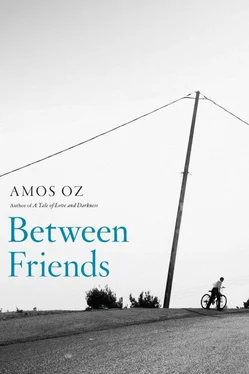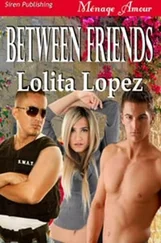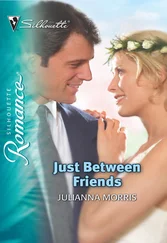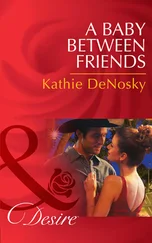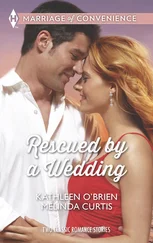Zvi thanked them both and said that the trouble was some youngsters here who take shortcuts through the lawns right after they’ve been watered and ruin them. As he said that, Moshe Yashar came in and asked politely if the lesson was only for kibbutz members or could high school students also join. Martin Vandenberg said, “We have no borders or limits. We are against borders in principle.”
Martin coughed and began the lesson with a short explanation: “When all human beings speak the same language, there will be no more wars because their common language will prevent misunderstanding among individuals and peoples.” Zvi Provizor remarked that the German Jews spoke the same language as the Germans, but that didn’t prevent the Germans from hunting them down and murdering them. Moshe Yashar raised his hand timidly and when Martin called on him, he pointed out that Cain and Abel probably spoke the same language, too. Martin asked him why, if that was true, he’d come there to learn Esperanto. The boy didn’t answer immediately. Finally, he mumbled submissively that learning Esperanto might help him learn other languages later on.
Martin smoked half a cigarette, wheezed, coughed deeply again, and explained that Esperanto has no more than about eight thousand root words, and all the necessary vocabulary is derived from these. The roots themselves are taken from Greek and from Latin languages. There are exactly sixteen grammatical rules, with no irregularities or exceptions. At the end of the first lesson, which went on for twenty-five minutes, Martin taught his students how to say the first verse of Genesis in Esperanto: En la komenco Dio kreis la ĉielon kaj la teron. In the beginning, God created the heavens and the earth.
Zvi Provizor, who in his free time still translated works by the Polish writer Iwaszkiewicz into Hebrew, thought for a moment, then said that Esperanto really did seem easy and logical and sounded a bit like Spanish to him. Moshe Yashar wrote everything down in his notebook. Martin said that imprecise words poison relations between people everywhere, and that’s why clear, accurate words can heal those relationships, but only if they are the right words spoken in a language that all people can understand. Moshe Yashar said nothing, but thought that the sorrow in the world was born long before words. And when Martin used the phrase “no compromises,” it occurred to Moshe that even Martin’s decision to smoke the occasional half-cigarette and not a whole one was actually a compromise.
After the lesson, Osnat walked Martin and the stroller holding his oxygen tank back home. He was very tired, his body ached, and his breathing was so labored that he decided to forgo the half-cigarette he’d planned to smoke later that evening. Osnat was barely able to convince him to eat some yogurt; then she helped him take off his shoes and sit down on the bed, with his back leaning against several pillows, to wait for sleep that might or might not come. After playing two songs on her recorder for him, she said good night, took the dinner tray and placed it on the porch steps, then went out for her evening walk along the cypress-lined avenue. At night, she heard him coughing through the thin wall that separated their beds, but as she was putting on her robe to go and check on him, the coughing stopped and didn’t start up again until morning.
The second Esperanto lesson was postponed because a day before it was scheduled to take place, Martin Vandenberg’s condition worsened and he was taken to the hospital in an ambulance and placed in an oxygen tent in the intensive care unit. During morning visiting hours, Leah Shindlin, as representative of the Health Committee, sat at his bedside, and in the afternoon, Osnat took her place. Martin’s eyes were closed most of the time. He would occasionally mumble something or smile. His eyes looked sunken and his steel-wool hair was unkempt. When spoken to, he just nodded. Several times, he managed to say some words of thanks to the women who watched over him. In the late afternoon, he complained that he didn’t have the strength to focus his thoughts. And once, when two brisk nurses came in to change his pajamas, he grinned suddenly and told them that death itself was an anarchist. “Death is not awed by status, possessions, power, or titles; we are all equal in its eyes.” The words were fragmented and indistinct, but Osnat, who was sitting beside him, understood him and felt how precious Martin was to her; she had to find a way to tell him that now. But the words didn’t come, so she merely held his warm fingers between her small, cold hands.
Five days later, his lungs stopped absorbing the oxygen that flowed into them, and he choked to death. Osnat, who was sitting beside him, stroked his forehead lightly and closed his eyes before she went out to the phone in the corridor to call Yoav Carni and tell him. Yoav sent a van with a driver to bring Osnat back home and transport the body to the kibbutz clubhouse, where, covered with a black sheet, it remained all night until the funeral the next morning. On the bulletin board in the dining hall, Yoav hung a small notice that he’d pecked out with one finger on the office typewriter:
Our friend Martin Vandenberg passed away this
evening.
The funeral will be held tomorrow morning at ten.
If anyone knows whether Martin has any relatives, please let Yoav know as soon as possible.
No relatives were found and only the members of Kibbutz Yekhat attended the funeral. It was a soft blue morning and the mourners were not bothered by the heat because a pleasant breeze blowing in from the west cooled their skin. The tops of the cypress trees that encircled the cemetery trembled slightly in the breeze. A swarm of butterflies fluttered in the air, bearing the smells of the fields, the orchards, and a distant fire. Fifty or sixty kibbutz members were there, all wearing their work clothes, as the funeral was taking place on a workday. They stood around the open grave and waited. There was no religious ceremony because Martin had left the Social Committee a note asking to be buried without a cantor or prayers.
David Dagan, the teacher, said a few words in the name of all the members. He described Martin Vandenberg as an anarchist who lived his entire life according to his beliefs. “Until almost his last day,” David Dagan said, “Martin worked in the shoe repair shop as if he had taken upon himself symbolic responsibility for every step we took.”
Then Yoav Carni, representing the secretariat, gave a short eulogy. He pointed out that Martin had been alone all his life, a survivor who had hidden in Holland during the Holocaust. “He saw with his own eyes how low human beings could sink, but still he came to us imbued with belief in people and in a future burning with the bright flame of justice. We were often surprised,” Yoav said, “at his honesty and devotion to his ideals. He was an intellectual and also a man who believed in the importance of physical labor, a man of principle and of uncompromising hard work.” Then Yoav spoke in praise of Osnat, who had tended to Martin devotedly when he was sick, and ended his speech with the hope that Martin Vandenberg and all he stood for would continue to be a source of inspiration for us all.
After the eulogies, at Yoav’s request Osnat played one of Martin’s favorite songs on her recorder. Some of the mourners hummed quietly along with her and others just moved their lips.
Zvi Provizor, Nahum Asherov, and Roni Shindlin, together with several other members, shoveled earth onto the cover of the coffin. The earth raised dust as it hit the coffin with a dry, hollow sound. Roni Shindlin stumbled on the mound of earth and would have fallen if David Dagan hadn’t grabbed him by the arm and steadied him. Osnat thought about the word uncompromising that Yoav had used to describe the deceased and decided she didn’t like it. Nevertheless, she had warm feelings for everyone present at the funeral, and though she didn’t know where that warmth stemmed from, she knew she would feel it for a long time to come.
Читать дальше
